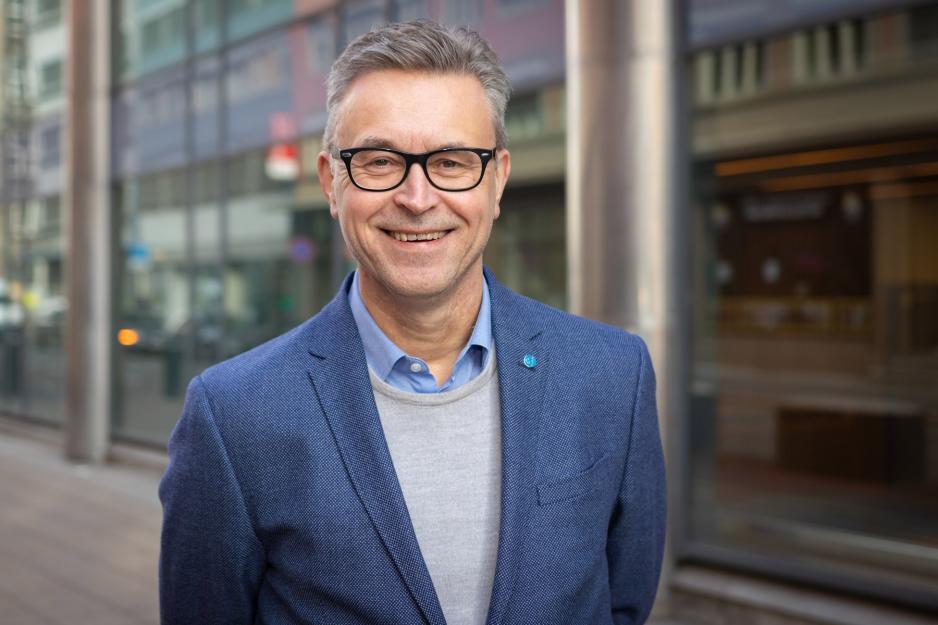Arne O. Holm says Can the Arctic Compete with Switzerland For Tax Refugees?

The Mayor of Bodø municipality in Northern Norway, Odd Emil Ingebrigtsen, wants to utilize tax policy to attract capital and people northward. (Archive photo: Hans Kristian Thorbjørnsen)
Commentary: What is needed to make people move from southern latitudes and northward to the Arctic? A cut in the wealth tax for the richest believes the city council in Bodø, a large city in a Northern Norwegian context, just north of the Arctic Circle.
The idea is that such a wealth tax will attract investment capital and, I would think, more inhabitants.
Bodø municipality is willing to use tax as a measure to stop the fleeing of both capital and people from the north to the south.
That is a good thing.
Whether the path goes via reduced tax wealth is more than uncertain. None of the expected effects are apparent. The empirical evidence is not on their side either.
The super-rich
Competing with Switzerland on tax levels for the super-rich requires more than a cut in wealth tax. Today's tax levels have so far scared few northerners out of the country. Bodø can supposedly adorn itself with one tax refugee, a commercial property investor.
An operation that has yielded extreme returns over the years, in addition to tax deductions due to an unsatiable appetite for low debt interest rates.
It is different now, as interest rates are rising and rental rates are plummeting. It is also not an industry which requires special expertise or creates many jobs.
The fish farming industry is still blowing up islets.
We know little about the effect of the wealth tax on industrial investments in the North.
The fish farming industry is still blowing up islets, and the battery industry is moving to the US. The latter is not due to the wealth tax but because the state refuses to foot the bill.
The flight from the North, or the lack of Arctic attraction, is about different groups entirely.
It is about a deficit of young people, preferably in the establishment phase, with high education and a will to make a difference in cities and towns where retirement homes are filling up while primary schools are emptied and closed.
Under the wealth heading
The jobs are here, but the labor is missing. Young people who stay in the North or choose to move northward have many values a society needs. But none of these values can be found under the wealth heading in the tax lists.
The business sector is screaming for labor, although few scream louder about the wealth tax's stranglehold on their finances.
For most, Bodø is an expensive city to live in. Getting into the housing market is a battle with poor odds for a newly-educated nurse or a police officer. Or a military officer wanting to live here instead of commuting.
The apartments constructed are sold in a market reserved for a few – a few who flip apartments to add new dollars to their wealth.
Being at the top of the house price statistics year after year is not a sign of good health, as many seem to believe. It is a sign of a housing policy driven by interests other than those held by a young family in the establishment phase.
Can adorn itself with one tax refugee.
Cost statistics show that Bodø is an expensive city to live in. Cutting taxes for the richest does not make it any cheaper. Many large fortunes, with low taxes, are needed to compensate for the loss of income. A loss of income that does not come alone, as state transfers are reduced in line with reduced municipal tax.
Municipal toolbox
Property taxes, income taxes, housing prices, electricity taxes, public transport prices, healthcare, and educational quality are all tools in the municipal toolbox. For the super-rich, these expenses mean little to their private finances. For young people, the opposite is true.
Retirement homes are filling up, while schools are emptied.
A national discussion about the wealth tax' form is necessary, provided one is also willing to discuss other discriminatory taxes and charges, such as the inheritance tax, which has been removed in Norway and guarantees that economic privileges are inherited through generations.
Removing the wealth tax without doing something with the inheritance tax is like pouring gasoline on the fire lit aside those already at the bottom of the table. A group growing faster than the super-rich.
It is commendable that municipalities are looking for economic measures to turn around a negative population development and increase private investments.
Still, why such experiments are reserved for just a few over and over again instead of being directed toward the major challenge in the North, an aging and declining population, is beyond belief.



